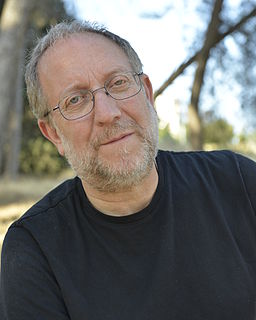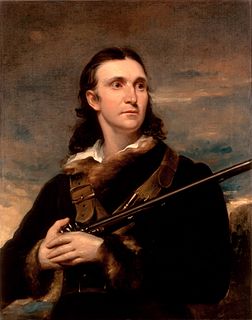A Quote by Wayne Pacelle
We have no ethical obligation to preserve the different breeds of livestock produced through selective breeding One generation and out. We have no problems with the extinction of domestic animals. They are creations of human selective breeding.
Related Quotes
Hardly a pure science, history is closer to animal husbandry than it is to mathematics in that it involves selective breeding. The principal difference between the husbandryman and the historian is that the former breeds sheep or cows or such and the latter breeds (assumed) facts. The husbandryman uses his skills to enrich the future, the historian uses his to enrich the past. Both are usually up to their ankles in bullshit.
Modernity is a desert, and we are jungle monkeys. And so new evolutionary selective pressures are coming to bear upon the human situation, new ideas are coming to the fore. Psilocybin is a selective filter for this. The wish to go to space is a selective filter for this. Just the wish to know your own mind is a selective filter for this.
In a way, human beings have never been part of the natural order; we're not biological in the normal sense. Normal biological animals stop eating when they're not hungry and stop breeding when there is no sense in breeding. By contrast, human beings are what I think of as "biomythic" animals: we're controlled largely by the stories we tell. When we get the story wrong, we get out of harmony with the rest of the natural order. For a long time, our unnatural beahvior didn't threaten the natural world, but now it does.
But theological change happens though selective quoting. Every religious person does it: You quote those verses that resonate with your own religious insights and ignore or reinterpret those that undermine your certainties. Selective quoting isn't just legitimate, but essential: Religions evolve through shifts in selective quoting.
One of the problems, and it's one which is obviously going to get worse, is that all the people at the party are either the children or the grandchildren or the great-grandchildren of the people who wouldn't leave in the first place, and because of all the business about selective breeding and regressive genes and so on, it means that all the people now at the party are either absolutely fanatical partygoers, or gibbering idiots, or, more and more frequently, both.

































